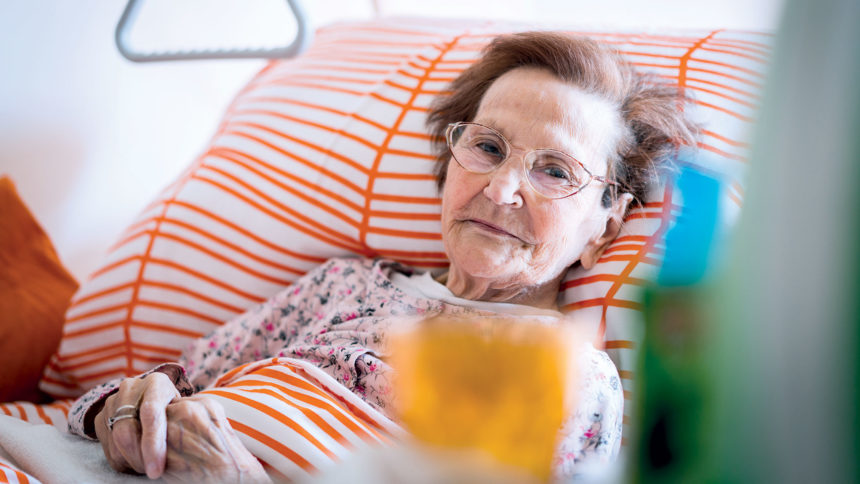
Vaccinated nursing home residents and staff members in a Kentucky facility appeared to have a distinct advantage during a recent COVID-19 outbreak, according to the Centers for Disease Control and Prevention.
COVID-19 vaccines are not 100% protective, and although nursing home infection rates plummeted after the vaccine rollout in December, these settings remain at high risk for disease transmission. In the case of a March 1 outbreak in the unnamed Kentucky facility, those who had received the shots were much less likely to become ill or to be hospitalized than the unvaccinated people who lived and worked on site, investigators reported on Wednesday.
The outbreak occurred eight days after the facility had hosted its third vaccination clinic. The facility had a 90% resident vaccination rate by that time, and about half of staff members had received a shot. COVID-19 cases subsequently were identified in 26 residents (18 fully vaccinated) and 20 staff members (four vaccinated). The infections appeared to be triggered by a strain of SARS-CoV-2 that was new to the region, the CDC reported.
Unvaccinated residents and healthcare personnel had three and four times the risk of infection during the outbreak than vaccinated residents and staff members, respectively.
In addition, the shots were 87% effective against symptomatic COVID-19 among both residents and staff members, and 94% effective against hospitalization among residents. No healthcare workers were hospitalized, reported Kevin Spicer, M.D., Ph.D., of the Kentucky Department for Public Health and the National Center for Emerging and Zoonotic Infectious Diseases at the CDC.
The Kentucky facility’s quick implementation of infection control strategies likely contributed to a rapid decline in new cases during the outbreak’s second week, the authors noted.
But three residents died due to the outbreak, two of whom were unvaccinated.
The findings underscore the importance of vaccination, even in residents and staff members who have recovered from previous infections, Spicer wrote. The facility diagnosed four cases of reinfection, only one of which was in a vaccinated person. “Continued emphasis on strategies for prevention of disease transmission, even among vaccinated populations, is also critical,” he added.
A larger study in 78 Chicago nursing homes, meanwhile, has found that most fully vaccinated residents and staff members were not infected by outbreaks following the vaccine rollout. And most did not develop COVID-19–like symptoms or have severe illness when they did contract the disease, investigators reported.
What’s more, post-vaccination infections did not lead to secondary transmission at these facilities. The Chicago study did not measure vaccine efficacy.
Full findings from the Kentucky study and the Chicago study were published on the CDC’s website.
In related news:
UK virus variant tied to higher risk of hospital admission People who contract the UK variant of the coronavirus have almost three times the odds of being admitted to a hospital with COVID-19. That’s according to a study between mid-December 2020 and early March 2021 by the Norwegian Institute for Public Health. It compared cases of the UK variant with cases caused by non-specific variants. The UK gene variant is known to be more contagious than the one that circulated earlier in the pandemic. Recent studies suggest that it also increases the risk of severe disease and death. The study has yet to be peer-reviewed.



